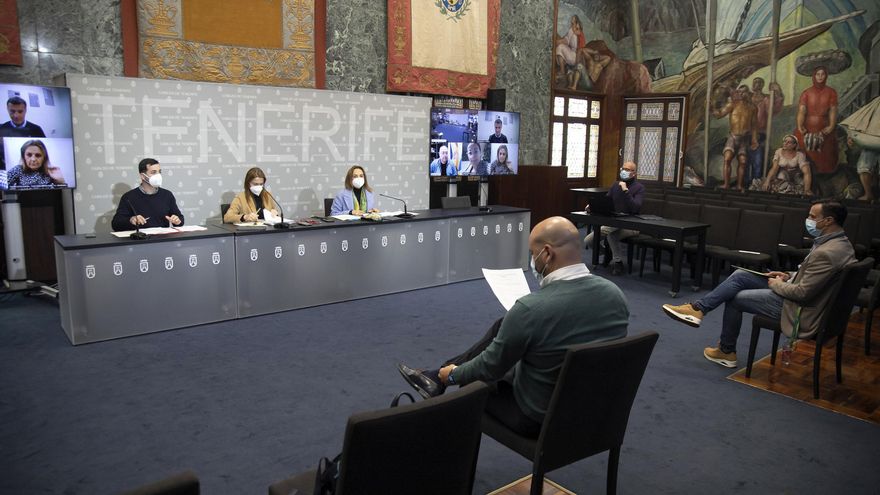
The Cabildo offers the municipalities of Tenerife its model of teleworking regulations. The Office of Comprehensive Assistance to the Municipalities of the Council of Tenerife has celebrated this monday an informative day with the representatives of the municipalities of the whole island to share aspects related to the Telecommuting Regulations of the Cabildoa model document that is provided to different municipal corporations to be replicated, in case they thought so.
“Telecommuting came in an obligatory way with the pandemic of the COVID-19was implemented immediately and has been maintained during the period of the health crisis, however, new technological developments confirm that It is a completely viable work formulaas long as it is done in based on planning and control“, has indicated the second vice president and insular councilor of the Presidency, Finance and Modernization Area, Berta Pérez.
“On this day we have transferred information about the Teleworking Regulations of the insular institution to the representatives of the municipalities,” said Berta Pérez, who added that “we believe that those municipalities that have not developed it can use ours and replicate it if they so considered.” The counselor also stressed that “It has been shown that teleworking works as long as protocols, objectives and evaluation are used, and it is done with the limits that they indicate”He even said “on many occasions it increases productivity remarkably”.
The insular director of Human Resources and Legal Advice, Lidia Pereira, pointed out that “the Teleworking Regulation of the Cabildo was included in the institution’s Modernization Plan to begin executing it in 2022, however the pandemic contributed to its advancement for the activation since 2020”, and highlighted in the course of its writing “the implementation of a prior participatory process that made it possible to obtain more than 4,000 proposals carried out by the staff, from which a decalogue was broken down on which the elaboration of the regulation of this type of work was based”.
Pereria concluded by indicating that “in this way, with participation, we believe that the alignment of individual reflection with the collective is made possible, promoting the commitment of all the parties involved”. From this decalogue, Berta Pérez highlighted three fundamental keys: “planning and management by objectives, the provision of technical and material resources necessary by the Cabildo, which have led to a rapid implementation of this modality, as well as flexibility, trust and responsibility as pillars of the employment relationship”.
For the rest, the main novelties of the new Labor Reform were also addressed during the conference with the municipal representatives.
The Office of Comprehensive Assistance to Municipalities is an initiative of the Cabildo de Tenerife to guarantee the exercise of municipal public management on the island, also constituting a structuring and balancing instrument so that those municipalities that have less administrative capacity can provide provide citizens with quality services that respond to their needs, and ensure that the place where they reside is not an impediment to accessing them.















